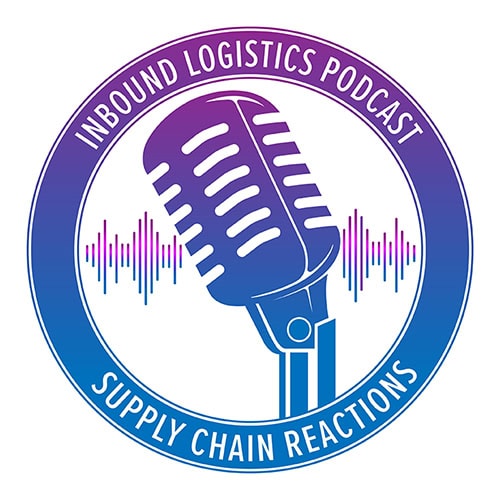Virtual Warehousing: Definition, Uses, and Benefits

In today’s competitive business landscape, organizations continually seek innovative ways to optimize their supply chain and inventory management. This need serves customers’ expectations, enabling technologies to take over most business operations.
Virtual warehouse has not been left behind in this transformation. For instance, in e-commerce businesses, a virtual warehouse is a concept that can make order fulfillment much easier for a business. It minimizes physical labor and eliminates overseas transportation costs to particular physical locations. It also helps meet customer demands more quickly while offering a powerful, cost-effective solution with seamless user collaboration.
This article delves into the definition of virtual warehousing, who can benefit from its use and the advantages it brings to businesses looking to enhance their operations.
What Is Virtual Warehousing?
Virtual warehousing is an innovative approach to inventory management, where businesses can efficiently track and monitor their stock across multiple physical warehouses using digital documentation and asset-tracking technology.
At its core, virtual warehousing involves creating a digital replica of physical space storage facilities that accurately represents all essential information about products housed within them.
This method enables companies to control their inventory completely while reducing costs and improving fulfillment performance.
Who Uses Virtual Warehousing?
Virtual warehousing is utilized by businesses across various industries to streamline their inventory management processes. This innovative approach can be especially valuable for e-commerce companies, as they manage large volumes of products and must constantly adapt to fluctuating customer demands.
In addition to e-commerce, manufacturers use virtual warehousing to optimize inventory levels and reduce costs associated with excess stock or storage fees.
For instance, automakers may use this system to coordinate the distribution of parts from numerous suppliers to maintain optimal production schedules without running out of components or overstocking certain items.
Organizations focusing on disaster relief operations also recognize the value offered by virtual warehousing implementation. These groups utilize digital platforms that enable them to monitor available resources in real time during times of crisis. Hence, they are better equipped to provide timely aid when needed.
Benefits of Virtual Warehousing
Embracing virtual warehousing offers numerous advantages for businesses, including significant cost reduction. Here are some of these benefits:
- Automation: Virtual warehousing automates various inventory management tasks, such as stock replenishment and picking. This reduces the need for manual labor and eliminates human error.
- Improved Data Analytics: Monitoring the performance of multiple physical warehouses from one source can provide valuable insights into the overall inventory health, allowing businesses to analyze trends and optimize stocks accordingly.
- Increased Visibility: In virtual warehousing systems, all operations are monitored digitally from one source, giving teams extensive visibility over their inventories in real-time. This helps increase accuracy and drive efficiency in warehouse operations.
- Reduced Storage Costs: By managing stocks more efficiently through an automated system, companies can reduce storage costs associated with traditional warehousing.
- Increased Agility: Virtual warehousing enables businesses to easily adapt to changing customer needs, enabling them to deliver products quickly and efficiently while providing better customer service.
As production information becomes more easily accessible to all relevant parties, collaborative efforts are bolstered, and decision-making processes are fine-tuned.
Challenges Of Using A Virtual Warehouse
Despite the many benefits of virtual warehousing, some challenges come with using this technology. They include:
- Data Security: Virtual warehouses contain highly sensitive data. Thus, companies need to deploy robust security measures to ensure this information remains secure.
- Integration: Businesses may find it difficult to integrate the necessary systems into their operations, and many companies need to hire skilled personnel or consultancies to guide them through the process.
- Initial Setup Costs: Setting up a virtual warehouse requires an initial investment of time and resources, which can be costly for some businesses.
It is important to recognize the potential issues related to virtual warehousing implementation and take steps to address them.
Optimizing Your Virtual Warehouse: Best Practices
To optimize your virtual warehouse, several best practices can help you get the most out of your data mart management system, including:
- Ensure you have a reliable and up-to-date inventory management system in place.
- Use business intelligence tools to gain insights into your data and identify trends that can inform decision-making.
- Monitor compute resource usage regularly.
- Implement proper access controls for sensitive data
- Ensure regular backups of critical information
- Leverage automation features to reduce manual workload.
By adopting these best practices, businesses can benefit from a more efficient and effective virtual warehousing solution.
FAQs
Here as some of the commonly asked questions about virtual warehousing:
What is virtual data warehousing?
Virtual data warehousing refers to using cloud computing and other technologies that enable businesses to store, manage, and analyze large amounts of data without maintaining their physical space or infrastructure.
What is a virtual warehouse in supply chain management?
A virtual warehouse is a digital solution used in supply chain management to track inventory and stock across multiple locations. This technique optimizes order fulfillment and ensures customer satisfaction by providing a 360-degree view of the inventory in real time.
Using this technology, companies can segment their inventory and set aside products for VIP customers or specific channels to increase revenue.
How does virtual warehouse work in Snowflake?
Snowflake’s virtual warehousing feature allows users to spin up any number of on-demand database servers, each with its own independent compute cluster, centralized fulfillment center and data storage. The virtual warehouse memory is used for high-performance caching, allowing efficient parallel processing of queries across multiple tables in storage.
What is the difference between physical and virtual inventory?
Physical inventory refers to actual, tangible products stored in a physical warehouse or retail store. In contrast, virtual inventory is a digital representation of the available stock that can be accessed and managed remotely.
Final Thoughts
Virtual warehousing is a modern business data solution to managing inventory and optimizing the supply chain. It provides real-time tracking of logistics assets, reducing costs while increasing user flexibility.
Virtual warehouse solutions allow users to segment inventory based on different channels or VIP customers, improving customer satisfaction. Although there are challenges associated with using warehouses’ logistics and fulfillment purposes, it remains an effective tool for organizations looking to process data faster and improve real-time visibility.
Connect with us for more supply chain management, logistics and related content.

